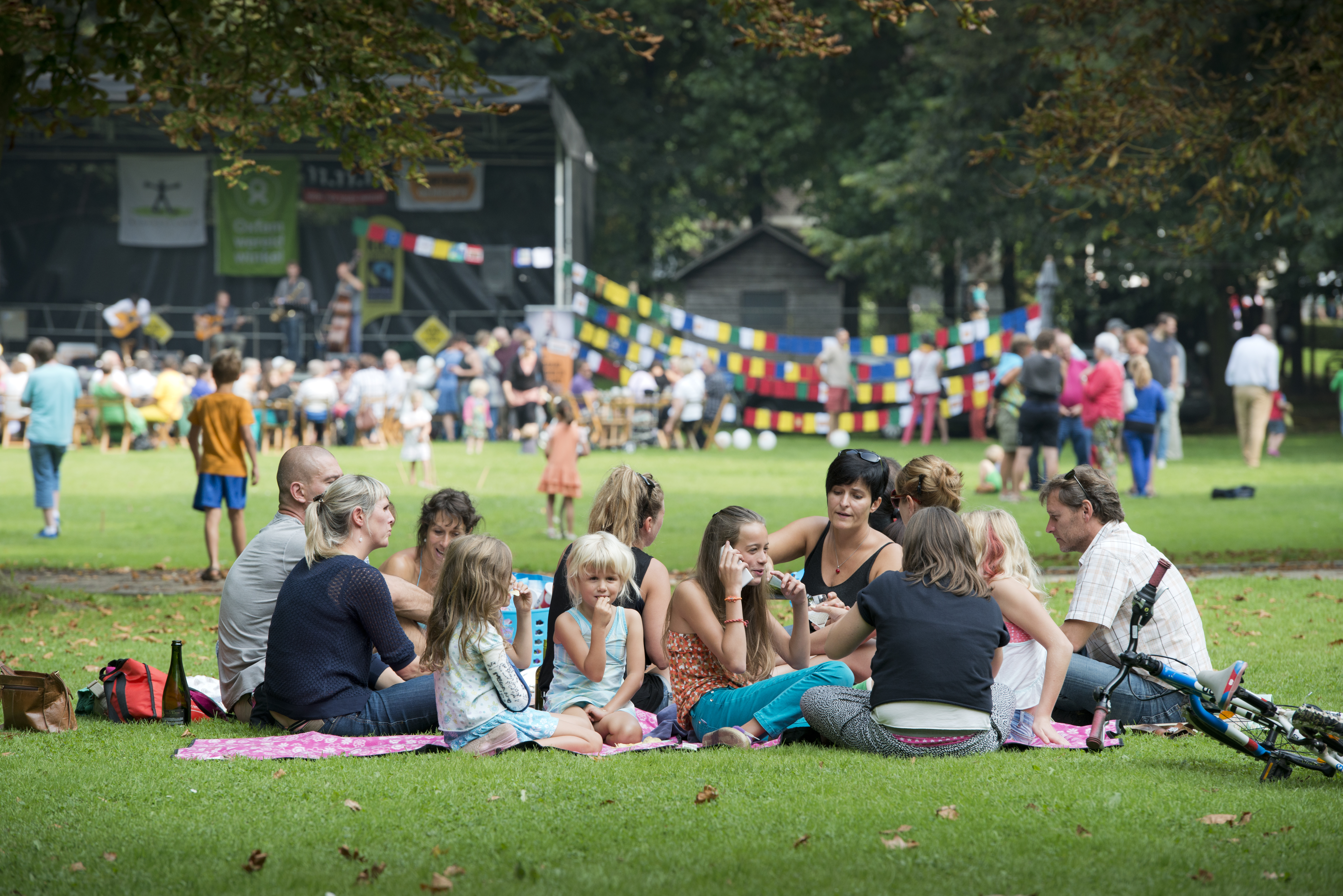Part of the Food Policy Snapshot Series
Policy name: Fair Trade Towns Campaign/Commerce Equitable Campaign
Location: Belgium
Population: 11.2 million
Food policy category: Social and economic equity
Program goals
- Encourage local businesses and organizations to buy, sell or promote fair trade products, thereby…
- Supporting the rights of farm workers around the world
- Supporting small farmers around the world
- Supporting sustainable agriculture
Program initiation
- The Fair Trade Town campaign first began in Garstang, UK in 2000. The organizers adopted a set of 5 goals that must be met to be considered a Fair Trade Town.
- Belgium’s Fair Trade Towns campaign started in 2005 with the city of Ghent. Belgium has modified the list of 5 goals to be more specific, and has added a 6th goal: promoting local sustainable food production.
How it works
To earn the official title of Fair Trade Town in Belgium, a municipality must accomplish six goals.
First, the city/town council must pass an official resolution to participate in the Fair Trade Towns campaign. The council must also commit to only using fair trade coffee and at least one other fair trade product for both its internal affairs and public events.
Second, shops, hotels, restaurants, and cafes must offer at least two fair trade items to their customers and display signs to indicate that they are participating in the campaign. The number businesses that have to participate in order to meet this goal depends on the population of the town or city.
Third, at least one company, one association and one school must participate in the campaign; more participation is required for larger towns and cities. To meet this requirement, the companies, associations or schools must offer at least two fair trade products to their employees, members or students, and they must advertise their participation in the campaign. Schools must also offer education on Fair Trade to the pupils.
Fourth, the municipality has to regularly communicate with the local media about its participation in the Fair Trade Town program. There must be at least one yearly campaign to raise awareness about the effort.
Fifth, the municipality must organize a committee to coordinate the Fair Trade Town campaign. The committee is responsible for encouraging and helping businesses, food establishments, associations and schools participate in the fair trade initiatives. The committee also keeps track of how many businesses and organizations are participating.
Sixth, the municipality must organize a new initiative or event on local sustainable food. This event must be either a permanent initiative or a yearly event supporting an ongoing initiative to eat local sustainable food.
Progress to date
Today, there are 1,850 Fair Trade Towns all around the world, in a total of 30 countries.
Flanders, the northern region of Belgium, has a particularly high rate of participation in the Fair Trade Town campaign. There are a total of 308 municipalities in Flanders, and 175 of those are official Fair Trade Towns (that is 56 percent), with another 73 up for consideration.
In the other two regions of Belgium, Wallonia and Brussels, the campaign goes by a different name—Commerce Equitable—but the goals are the same. In all three regions of Belgium, there are a total of 191 municipalities participating.
Ghent, the first city in Belgium to become an official Fair Trade Town, has multiple events every year to promote fair trade food and clothing, and they have an official Fair Trade Route through the city that gives an economic history of Ghent and passes by many establishments that offer fair trade products.
Why the program is important
Fair trade protects farmers and farm workers in the south, who often struggle to make a living producing or harvesting food.
Small farmers often struggle to compete with the low prices offered by large food production companies; sometimes they cannot even cover their production costs selling their food for market price. The International Fair Trade organization addresses this problem by setting a minimum price which will cover the cost of production.
The minimum price also protects farm workers, who often get paid extremely low wages to harvest crops, in order to keep the cost of food low.
The International Fair Trade organization also forbids producers from using GMOs and certain chemical pesticides, and incentivizes farming practices that are environmentally sustainable.
Evaluation
The Fair Trade Towns campaign has created a network of people at the local level who are active in promoting fair trade. Many of these local actors never would have engaged with fair trade if it hadn’t been for the Fair Trade Towns Campaign.
Awareness of fair trade in Belgium has been steadily increasing. A yearly poll conducted by the Trade for Development Center found in 2016 that 92 percent of Belgians have heard of fair trade, compared to 85 percent in 2014.
The survey also found that half of Belgians had a “positive” or “highly positive” response to free trade, and 43 percent of Belgians regularly bought fair trade products.
Learn more
https://fairtradegemeenten.be/
Point of contact
For Flanders: info@fairtradegemeenten
For the Brussels and Wallonia region: info@cdce.be
Similar practices
- Thirty countries around the world have their own Fair Trade Towns campaigns, including the United States.
- In the United States, there are 109 institutions of higher education active in the Fair Trade Colleges & Universities campaign.
- Since 2014, the Ben & Jerry’s ice cream company had a Fair Trade certification for its sugar, cocoa, vanilla, coffee, and bananas.
References
https://www.fairtradetowns.org/resources/goals-action-guides/235-belgium
https://www.befair.be/nl/content/opiniepeiling-2016-over-eerlijke-handel
https://www.fairtradetowns.org/about-us
https://www.fairtrade.net/about-fairtrade/benefits-of-fairtrade.html


